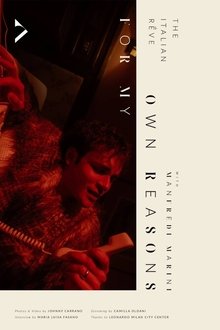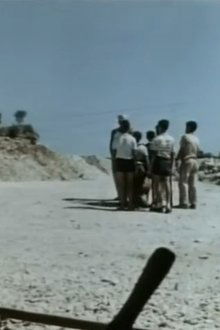Repainting Cuba takes a critical look at communist Cuba, where both the facades and the aging regime were given a coating of colorful paint in connection with the 50 year anniversary of the revolution. Two young Cubans under house arrest talk about being imprisoned for dealing with foreign tourists in a society where gossip and backstabbing is endemic, and where the heavy varnish can’t conceal the cracks.
Related Movies
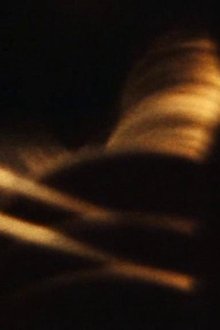
Ariadne (2005)
The constant movement of the wheels, threads, sprockets, feet and hands suggests restlessness, and this is paralleled by the soundtrack. The unknown woman could be Gretchen from Faust, hopelessly in love or Ariadne who gave Theseus the thread to find his way out of labyrinth or perhaps she is one of the fates, weaving destiny… Enlarged from Super-8 to 35mm, the film is very grainy, in itself an homage to the medium of film which is also emphasized by the depiction of all kinds of turning machines, both in image and sound.

Nachtarbeiter - Von Fledermäusen und anderem Nachtgetier (1984)
A cinematic foray into nocturnal nature, where numerous nocturnal animals are in search of prey: From midnight to 4 a.m., the camera observes bats and other nocturnal creatures.
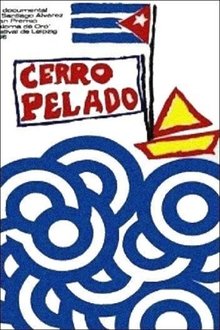
Cerro Pelado (1966)
A ship of athletes training on the rough seas becomes a symbol of Castro’s Cuba, the games projected on the backdrop of political struggle. This is the story of a ship and of a sports delegation whom the enemy tried to stop from participating in the Tenth Central American and Caribbean Games.
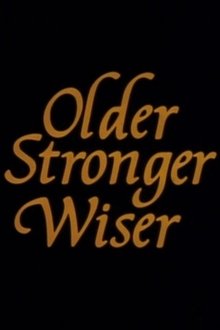
Older, Stronger, Wiser (1989)
In this short documentary, five black women talk about their lives in rural and urban Canada between the 1920s and 1950s. What emerges is a unique history of Canada’s black people and the legacy of their community elders. Produced by the NFB’s iconic Studio D.

idizwadidiz (2017)
Two friends walk and draw circles. It is what it is, idizwadidiz, c’est ce que c’est, seskecé. Nice weather.

It's Your Health (1949)
Tommy Davis asks dentist Dr. Hendricks about his older brother Jim, a star halfback who failed his Annapolis dental examination. The doctor offers good advice, the kind one should share with his friends. Tommy invites his whole gang to hear Dr. Hendricks explain the importance of dental health and how dental disease can be controlled. Dr. Hendricks tells a fascinating story. He talks about mouth hygiene, dental care and the role foods play in protecting dental health. Tommy and his friends learn the facts, and the care of their teeth and health takes on a new, highly important light. As for Jim, he profits, too. The story ends on the note that dental health is essential in health generally, appearance and personality.
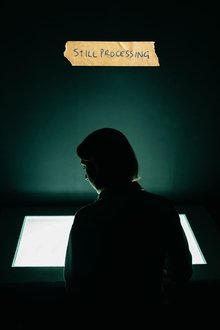
Still Processing (2021)
A box of stunning family photos awakens grief and lost memories as they are viewed for the first time on camera.

Cleaners of Death (2018)
This is a story about people whose invisible job is to clean up the world that is hidden from our society.

Kid City (1972)
Documentarian Jon Boorstin follows architect Frank Gehry and his sister, Doreen Gehry Nelson, as they attempt a new method of teaching elementary school children in Los Angeles. With funding from the National Endowment for the Arts, the siblings work together on a pilot program of “design-based learning” that would restructure the typical classroom curriculum, replacing rote math or civics lessons with an imaginary city designed and built entirely by the students themselves. Restored in 2018 by the Academy Film Archive.

People Who Make Things (1970)
A portrait of three Los Angeles area residents who create things with their hands. Angelo Austin decorates wedding cakes; Dean Jeffries designs, manufactures, and paints custom cars; and Pamela Weir-Quiton creates wooden dolls. Restored by the Academy Film Archive in 2016.
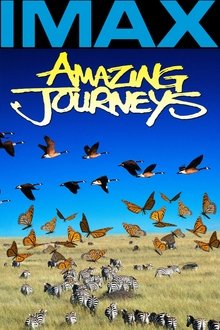
Amazing Journeys (1999)
By land, by air, and by sea, viewers can now experience the struggle that millions of creatures endure in the name of migration as wildlife photographers show just how deeply survival instincts have become ingrained into to the animals of planet Earth. From the monarch butterflies that swarm the highlands of Mexico to the birds who navigate by the stars and the millions of red crabs who make the perilous land journey across Christmas Island, this release offers a look at animal instinct in it's purest form.
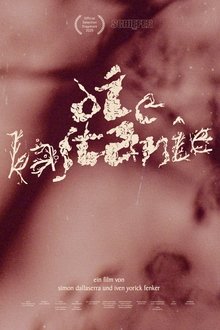
die kastanie (2025)
The chestnut tree is old and sick and may have to be felled. But for now, it still stands, towering over the garden. Slowly, like buds unfolding, the stories of the people who gaze upon the tree emerge.

FFG: un retrato (1976)
An experimental portrait of Fernando Fernán Gómez, one of the most renowned Spanish artists of all time.

Naim and Wadee'a (2000)
A documentary exploring social life in Yaffa before 1948 through a miniature portrait of a Palestinian couple, Wadee’a Aghabi and Naim Azar, constructed through the oral histories presented by their daughters and relatives.

La casa delle vedove (1960)
LA CASA DELLE VEDOVE portrays a group of widows who, he thinks, lived in a constant ‘dialogue‘ with death. In the house where they all lived ‘every colour was saturated with that special reddish shade that you see everywhere in Rome, and furthermore the rooms were filled with a stale, musty smell.‘
